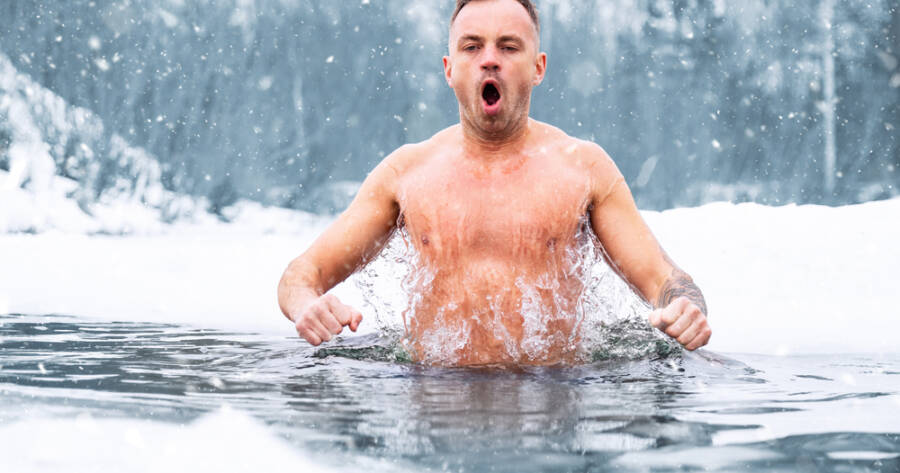Cold water swimming has been gaining popularity in recent years, with many enthusiasts swearing by its health benefits. While the idea of plunging into freezing water may seem daunting to some, numerous studies suggest that regular exposure to cold water can have positive effects on both physical and mental well-being. In fact, there is a surprising link between cold water swimming and longevity. Explore how this practice can contribute to a longer, healthier life.
Boosting Immune System Function
One of the most significant benefits of cold water swimming is its ability to enhance the immune system. When your body is exposed to cold temperatures, it responds by increasing the production of white blood cells, which are essential for fighting off infections. The cold water stimulates the body’s natural defense mechanisms, helping to prevent illnesses and infections.
Regular cold exposure is also believed to improve circulation by constricting blood vessels and redirecting blood flow to vital organs. Once you exit the cold water, the blood vessels dilate, allowing fresh, oxygenated blood to flow to your extremities. This process can strengthen the cardiovascular system and improve overall circulation, which is crucial for long-term health and longevity.
Reducing Stress and Improving Mental Health
Cold water swimming has been shown to have profound effects on mental health, especially in terms of stress reduction. When you immerse yourself in cold water, the body experiences a sudden shock, which can trigger the release of endorphins—the body’s natural painkillers. These endorphins help to reduce feelings of anxiety and depression, leading to an overall improvement in mood and emotional well-being.
Additionally, cold water exposure has been linked to lower levels of cortisol, a hormone associated with stress. By regularly engaging in cold water swimming, you can effectively manage stress and promote a sense of calm. This is especially important as chronic stress can have negative effects on both mental and physical health, potentially shortening lifespan if left unchecked.
Enhancing Recovery and Muscle Health
Cold water immersion is commonly used by athletes for its recovery benefits, but its effects extend beyond just those in training. Swimming in cold water can help reduce inflammation in the body, which is a key factor in many chronic diseases, such as arthritis. The cold water numbs the pain and constricts blood vessels, reducing swelling in sore muscles and joints. After exiting the cold water, blood flow returns to the affected areas, which accelerates healing and tissue repair.
For seniors or those who suffer from chronic pain conditions, cold water swimming can provide a natural way to relieve discomfort and promote better mobility. Regularly practicing this form of cold exposure can help maintain muscle health and flexibility, which is important for maintaining an active lifestyle as we age.
Boosting Circulation and Cardiovascular Health
Cold water swimming offers a significant cardiovascular workout that strengthens the heart and improves circulation. When you dive into cold water, the body must work harder to regulate its core temperature. This process increases the heart rate and stimulates circulation, which helps improve blood flow throughout the body. This cardiovascular exercise can enhance the efficiency of the heart, improving overall heart health and lowering the risk of cardiovascular diseases such as hypertension and heart disease.
Furthermore, cold water swimming can help improve vascular health by enhancing the function of blood vessels and promoting better oxygen delivery to the muscles. Consistent practice can increase the strength of the heart, reduce the risk of heart-related conditions, and ultimately contribute to a longer, healthier life.
Strengthening the Nervous System and Increasing Resilience
Cold water swimming has a surprising effect on the nervous system, boosting the body’s resilience and ability to cope with stress. When you expose yourself to cold water, your body goes into a fight-or-flight response, triggering a release of adrenaline and norepinephrine. This response helps to sharpen the mind, improve alertness, and heighten the body’s resilience to physical and emotional stress.
Over time, repeated exposure to cold water helps train the body to better cope with stress and discomfort, promoting mental toughness and greater emotional stability. This can be particularly beneficial as we age, as it helps us maintain cognitive function and emotional health. The practice of cold water swimming can therefore act as a form of “stress inoculation,” making the body more capable of handling life’s challenges.
A Surprising Path to Longevity
Cold water swimming offers a wide range of physical and mental health benefits that can contribute to a longer, healthier life. From boosting immune function and improving circulation to reducing stress and enhancing recovery, the benefits of this practice are undeniable.
While it may not be for everyone, those who embrace cold water swimming may find that it improves their overall well-being and longevity.

